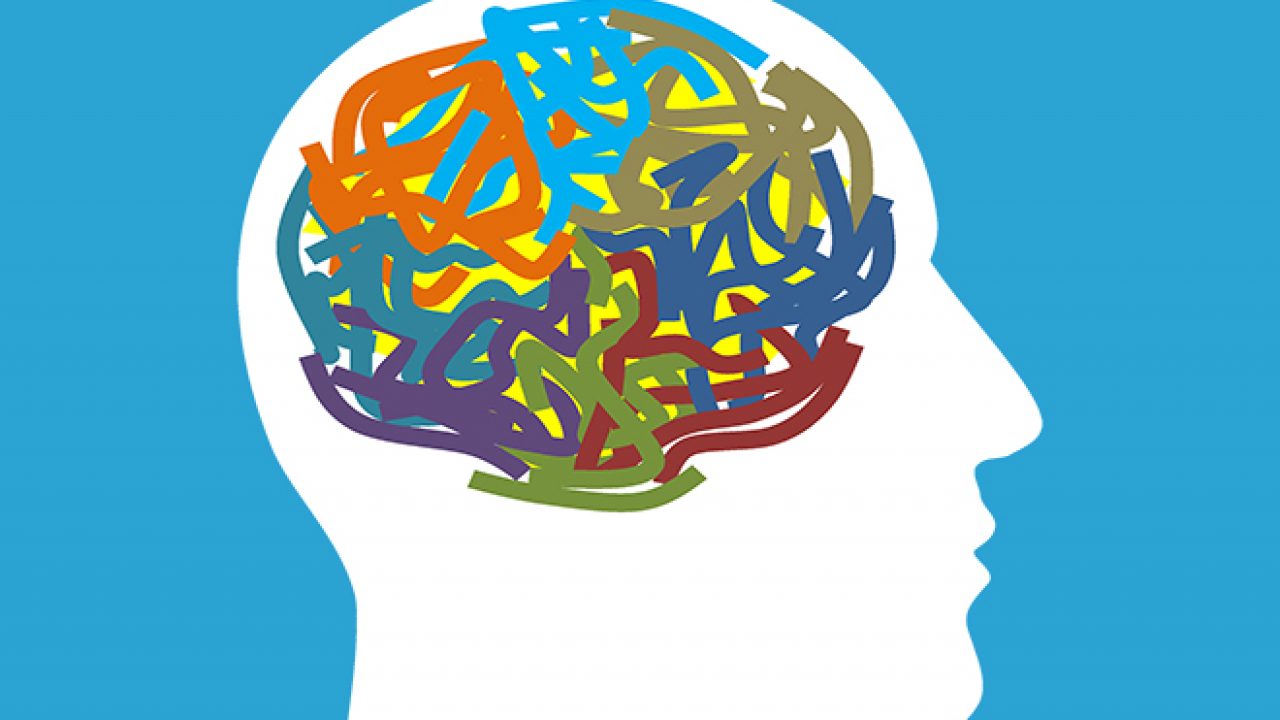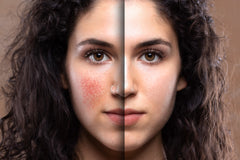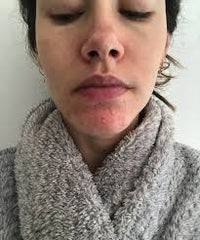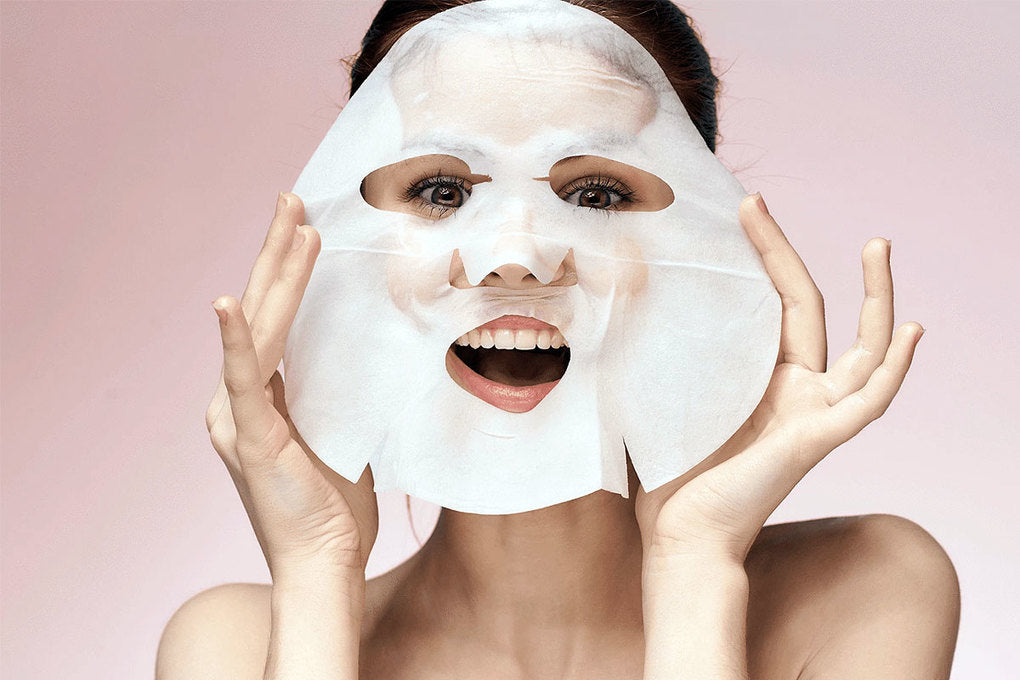How Mental Health Aggravates Skin Conditions

Consider this: someone tells you that you've worn your pants inside out. You can feel your face and ears burning with embarrassment. Or, the uncertainty caused by the global pandemic is stirring your anxiety and your face starts to itch uncontrollably; your eczema is flaring up. It is in those moments you realize that what you feel within can be reflected on your skin.
Even though cause-and-effect can be difficult to understand, there is no denying the brain-skin connection. Studies prove that at least in some people, psychological conditions can activate or worsen skin conditions. Most skin problems clear up with antibiotics, anti-inflammatory drugs, and topical medications. However, sometimes when a skin condition resists conventional treatment, it is important to recognize the possibility of emotional problems lurking underneath the surface. In such cases, a medical approach, coupled with psychological strategies might be effective.
Understanding the mind-skin connection
As the body's largest organ, the skin protects the body from injury, infection, and regulates the effects of environmental factors such as ultraviolet light, heat and cold, and pollution. It contains sweat glands and blood vessels that keep your body hydrated and maintain its temperature, alongside detoxifying waste, and protecting the nerve fibers that are in constant contact with the brain. Not to forget, the skin also contains a multitude of immune system cells that play a huge role in warding off bacteria and viruses!
Apart from being made from the same embryologic tissue, the bond between the brain and skin focuses on areas in both, dermatology and medicine. This is known as psychodermatology- the interplay between the mind and skin. Certain types of stress can interfere with the immune system, affecting the pace at which the skin heals. Research also suggests that chronic stress and anxiety can disrupt the skin's barrier, making it more prone to inflammation and a loss of fluid from the skin cell layers. The skin's immune cells are influenced through the brain and the nervous system through different chemical messengers and receptors that react to stress. When you feel stressed or anxious, the brain goes into response mode and exerts its effect on the skin through the hypothalamic-pituitary-adrenal (HPA) axis. When this response is activated, cortisol-the stress hormone- is released. In smaller doses, cortisol acts as a biological coping mechanism but if your body is exposed to persistent higher levels of cortisol, it will start to wreak havoc on your skin. Super-high levels of cortisol can also rob you of a good night's sleep, affecting your skin the next day.
Skin conditions that could be caused by your psychological health

1. Acne
You know how sometimes you could be doing everything right in life- eating a clean diet, increasing your water intake, exercising, double-cleansing, using tried-and-tested products- but even then you wake up with a gnarly pimple on your face the next morning? Research says that chronic stress and anxiety can cause inflammation in the body, in turn causing cortisol spikes. This encourages the sebaceous glands to produce more oil on your skin, increasing dead skin cells, and blocking pores.
 2. Eczema
2. Eczema
What was that holy grail product that you slap onto your skin every night? Yes, you guessed it- Hyaluronic acid! Your skin naturally produces hyaluronic acid- a natural moisturizer. However, when cortisol levels in your body are running high, the body's ability to produce hyaluronic acid is hindered, causing inflammation and itchy, flaky skin. If you have eczema, chances are that you have an overreactive immune system that can be triggered easily. Eczema is caused by an unhealthy skin microbiome that can weaken the skin barrier, making it more prone to irritation.

3. Rosacea
Rosacea causes intense redness on your face, often taking on a rather ruddy appearance. Blood vessels become visible and your skin seems to be scattered with tiny dots that may be mistaken as acne. This chronic skin condition is triggered by environmental factors as well as emotional and mental stress. Experts also theorize that rosacea is worsened by inflammation which is caused by stress.
 4. Psoriasis
4. Psoriasis
Psoriasis is a chronic skin condition that has been linked intricately to stress disorders. While psoriasis is a genetic condition, stressful life events can often trigger it. Limited research shows that the autoimmune disease occurs when the immune system turns on the body- causing skin cells to grow abnormally. Since stress affects the immune system, doctors believe that there is a strong link between stress and psoriasis.

5. Hives
On some days, you are running on zero sleep, five cups of coffee, and are still unable to meet deadlines or reach meetings on time. Those are the days your anxiety levels are hitting the roof and suddenly, you notice pink swollen welts on your skin that itch like mad. According to The American Academy of Dermatology (AAD), while hives are normally caused by an allergic reaction to certain foods or medications, stress can also be an underlying factor that causes them to flare up.

6. Dullness
Bouts of depression, panic attacks, PTSD, and other mental illnesses can largely affect your skin. First you start to cut down on your appetite, then your sleep gets disrupted, and soon you'll notice that your skin is starting to lose its glow. Sleep deprivation is also linked to faster skin aging which means that you could be using all the right products, but if your mental health is in shambles, all the beauty and glory won't be able to fix your skin. Once you've identified the trigger for that awful amount of stress, you'll be able to remain healthy inside and out!
The bottom line
Stress-induced behaviors such as alcoholism and smoking might feel good momentarily but they aggravate most skin-related concerns, increasing their occurrence and severity. Checking in with yourself and identifying psychological issues can help heal some of your health concerns. However, make sure to seek medical help to treat the skin condition before stocking up on antidepressants or anxiety pills. In order to alleviate anxiety and keep your skin looking dewy and fresh, adopt a healthy lifestyle- go for runs, exercise, try incorporating more veggies and water into your diet, curate an AM and PM routine during which you can pamper your skin, and don't forget to check in on your mental health! Click here to find out why self-care is so important and how skincare rituals can help you feel more grounded.




Comments